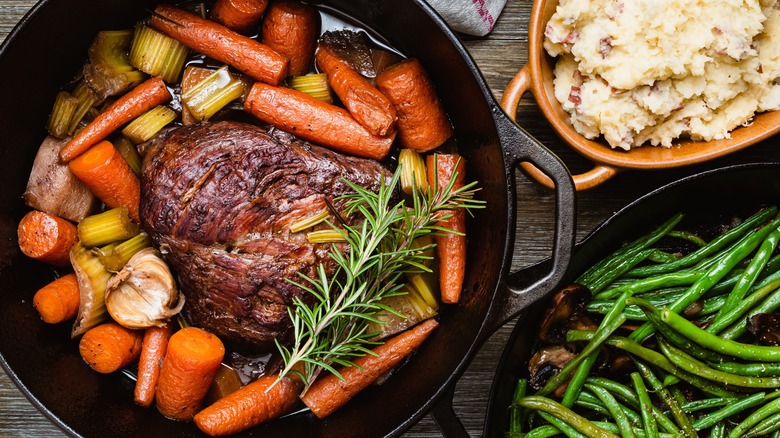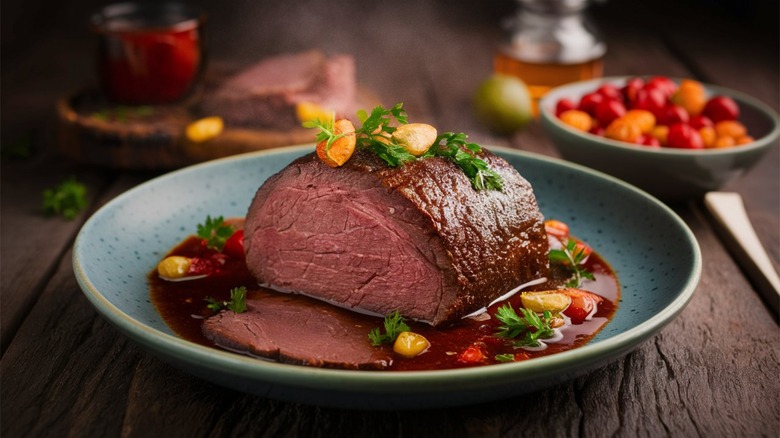The Extra Step That Sets German Pot Roast Apart
There are ample ways to transform a chuck roast or rump roast from tough to fork-tender. We know the low-and-slow method works wonders. A Mississippi-style roast can easily spend eight hours in a crockpot, and a hunk of chuck roast spiked with herbs and figs begins falling apart after baking at notably low temps, like 250 degrees Fahrenheit.
But there's an additional method that can elevate any pot roast, and it comes from the same cuisine that brought us bratwurst and schnitzel. German pot roast, commonly known as saurbraten, includes one preparation trick that sets it apart from the others: It's marinated for days, rather than hours.
A typical recipe for sauerbraten requires a marinating time of two to three days. Most recipes will also recommend that you turn the meat once or twice a day, encouraging the marinade to evenly seep into the roast. The result? A piece of meat that is succulent and surprisingly delicate.
Breaking some rules
A sauerbraten marinade will include ingredients like red wine, vinegar, seasonings like salt and pepper, and aromatics like bay leaves. Before steeping the beef in the mixture, the marinade is reduced over heat. There's also one marinade ingredient that really makes things interesting: Crushed gingersnaps.
We know it's not typical to leave your meat marinating for days on end. Even the U.S. Department of Agriculture tells people to avoid pushing past the two-day mark, which can lead to a mushy piece of protein, as the marinade will break down the structure of the meat. That being said, ultra-tender meat is what we're going for here — and sometimes, the usual rules are meant to be broken.
Unlike skirt or hanger steak, the best cuts of meat for pot roast typically include chuck roast and brisket — hefty cuts that contain high levels of collagen. While a days-long marinating extravaganza may seem over-the-top, these cuts of beef handle longer marinades better than, say, a lean little cut of filet mignon.
And while the early history of sauerbraten appears somewhat unclear — some attribute its origins to the days of Ancient Rome — the recipe remains beloved today. Even popular chefs like Alton Brown have crafted their own variations of the dish, including the 3-day marinating time.

